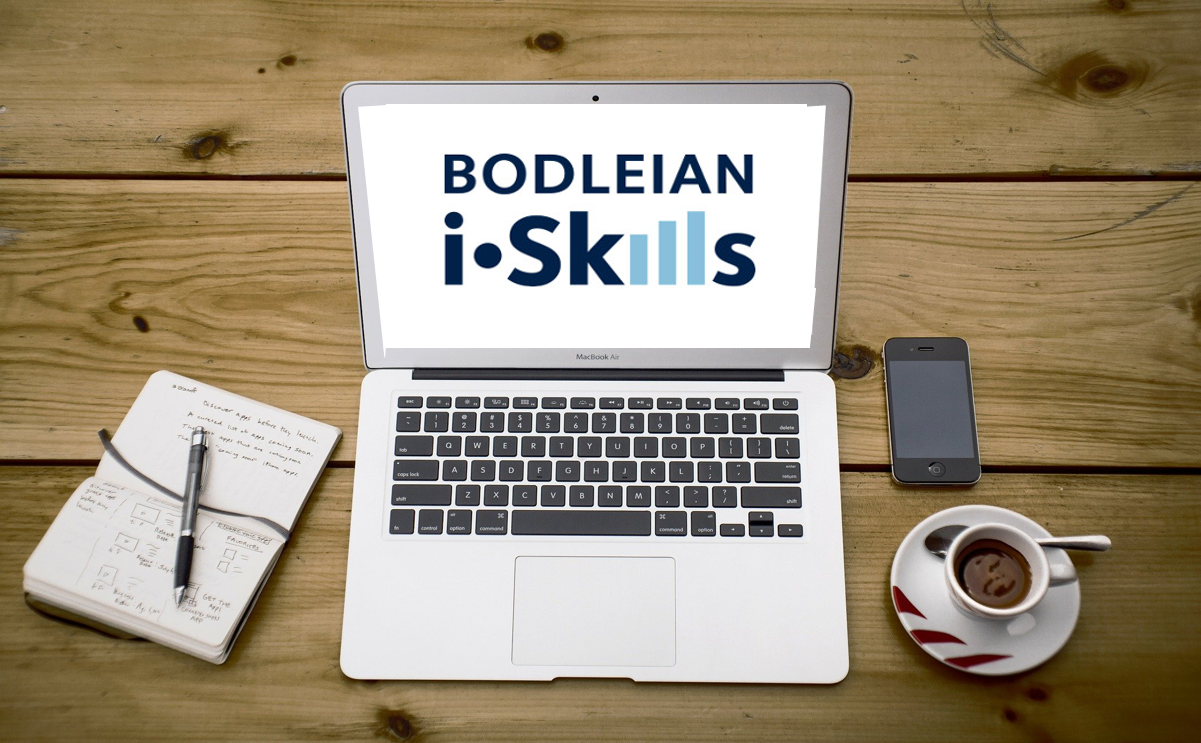 Bodleian iSkills workshops aim to develop your skills in information discovery and scholarly communications, covering a variety of resources across a wide range of disciplines. They are primarily aimed at University of Oxford students and staff. Some workshops take place face-to-face, whilst others are run online.
Bodleian iSkills workshops aim to develop your skills in information discovery and scholarly communications, covering a variety of resources across a wide range of disciplines. They are primarily aimed at University of Oxford students and staff. Some workshops take place face-to-face, whilst others are run online.
The workshops are FREE but online booking is essential. A list of the sessions taking place this term can be found on the iSkills Workshops webpage.
Workshops taking place in 2nd Week:
Keeping up to date with research (Tues 3 May 14:00-15:30)
An online introduction to using alerts to keep up to date with new research and save you time, concentrating on: how email alerts can help you; setting up alerts on your favourite databases and other platforms for new content in your field; managing your alerts.
Who is this session for? Postgraduates, researchers, academics and anyone interested in the topic.
Getting started in Oxford libraries (Wed 4 May 14:00-16:00)
An online introduction to getting started in Oxford libraries. This workshop will feature live demonstrations and hands on activities on how to use SOLO, the University’s resource discovery tool.
Who is this session for? All Oxford Library users.
Data sources for research – discovery, access and use (Thurs 5 May 10:00-12:00)
This workshop will provide a grounding in the different ways quantitative and qualitative data is being made available to benefit researchers. By the end of the session, you will also have some insight into how your own future work could add to the process and become part of the research discourse. The course aims to provide an overview of macro and micro data sources available at the University of Oxford, including national data archives, subscription services, business data, and offers some pointers for further searching.
Who is this session for? DPhil students and research staff (particularly in Social Sciences). This workshop will be most beneficial to those researchers planning to use secondary data sources (quantitative, qualitative and mixed) as part of their research or who wish to learn more about the potential of open data platforms and data archives.
Referencing: choosing and using software for referencing (Fri 6 May 14:00-17:00; repeated Fri 13 May 09:30-12:30)
This introductory session gives an overview of how reference management works, explores the advantages and disadvantages of a range of software packages and gives you the opportunity to try out three different packages (RefWorks, EndNote and Zotero) so that you can work out which one is best for you.
Who is this session for? Postgraduate students, researchers and University staff.

